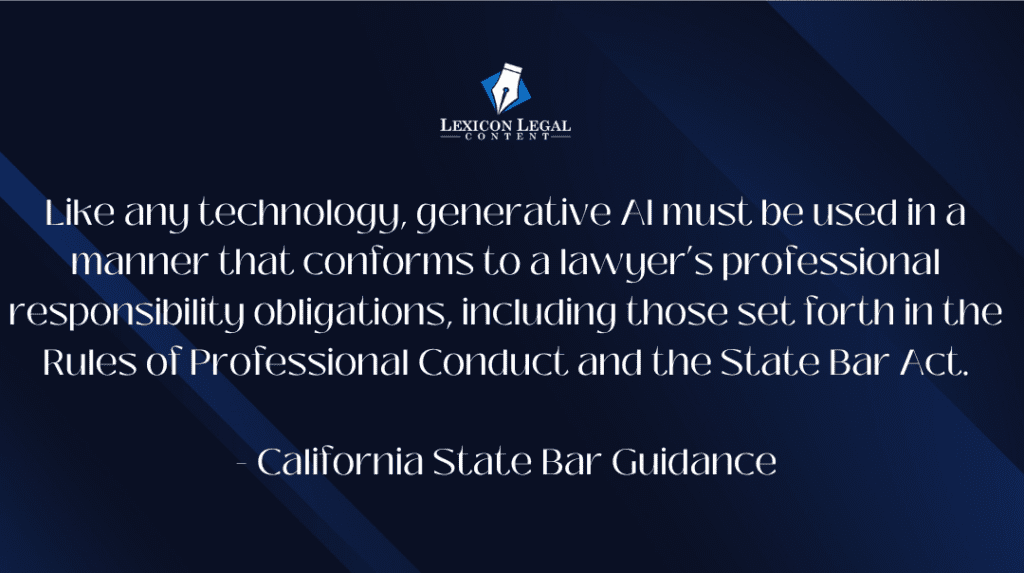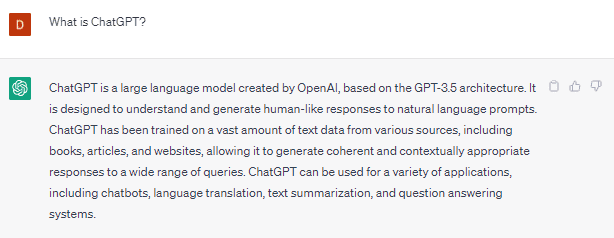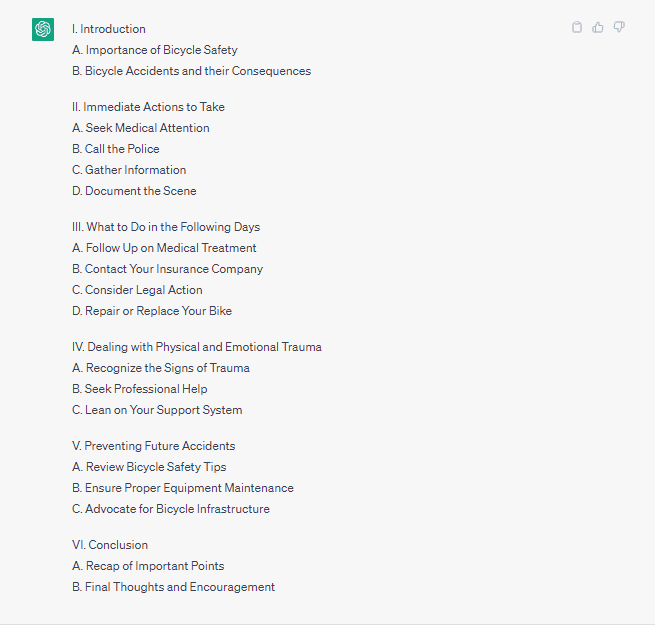As an attorney, you have a lot of useful legal knowledge in your head. While you use this knowledge to help your clients daily, you could also leverage it to produce useful content that would bring more prospects to your door.
For example, if you don’t already have a law blog, you’re missing out on the many benefits of legal content marketing. Only about a third of all law firms have a blog on their website that they post regularly to, giving them the upper hand.
An effective digital marketing strategy includes content marketing. Compelling content ranks well on Google and provides potential customers with information about their legal issues. No matter the size of your practice, you have the potential to rank at the top of Google and other search engines with consistent, effective legal content.
Law school may not have prepared you or other legal professionals for legal blog writing or drafting website content, but it doesn’t mean that it isn’t crucial to the success of your practice.
What is Legal Content Marketing?
Whether you like it or not, traditional methods of marketing your law practice are becoming less effective and more obsolete by the minute. Taking its place is legal content marketing.
Legal content marketing is a strategic marketing approach focused on generating and distributing relevant, valuable, and consistent content. Content marketing aims to attract and retain a clearly defined audience — and, ultimately, to drive profitable consumer action.
Effective legal content marketing involves the distribution of relevant, timely, and valuable legal content, including:
- Blogs
- Website content
- Newsletters
- White papers
- Social media posts
- Emails
- Videos
- Podcasts
- Well researched web pages that explain legal concepts
- Practice area pages
- Other tools and mediums
These pieces of legal content don’t directly promote the law firm but rather stimulate some type of interest in the firm’s services. Content marketing is essential for today’s digital landscape, as consumers have become increasingly numb to typical advertising tactics.
Cultivating Relationships with Prospective Legal Clients
When legal content marketing is done correctly, it conveys expertise and value to current and potential clients and shows that you value them.
The consistent use of a well-planned law practice content marketing strategy lays the groundwork for and cultivates relationships with your prospective and existing clients. Your readers are more likely to hire you when they need legal counsel if they think of you as a:
- Valuable source of advice and guidance
- Partner who wants to help them solve their problems and achieve success
The Benefits of Legal Content Marketing
Content marketing can benefit your legal practice in several ways. An effective content marketing strategy will not only address legal issues but can also:
Enhance Online Visibility
You will attract more prospects and website visitors with an effective marketing strategy, especially when society is frequently searching for legal solutions to their pain points. Providing valuable, educational, and informative content about topics that interest your audience and potential clients will enhance your online visibility through your website or social media accounts.
Create More Leads
Not only does proper content marketing highlight your law firm online, but it also generates more solid leads. Educating others interested in what you have to offer builds trust and helps them feel more comfortable becoming a client. Developing relationships with prospective clients will inevitably bring more quality leads.
Boost Loyalty
Client loyalty is crucial in legal marketing and business because the more loyal your clients are, the more repeat business you will get—either from repeat clients or others they have referred to you. Offering informative content can help them start to build trust with your brand and see you as a thought leader.
Increase Authority
Developing quality, helpful content is a key ingredient to improving online authority and becoming a thought leader in your legal niche. Not only does content help you build trust with current and potential legal clients, but it can also position your law firm as the most authoritative source on a particular topic.
Streamline Meetings
The initial consultation and first few meetings with a prospective legal client are bound to be full of many questions. Giving potential legal clients informative content at every stage of their legal journey will help them find answers to questions they may have before even becoming a part of your audience.
Return on Investment
Content marketing is also excellent because it’s known to be cost-efficient as long as you are willing to learn and shift the practice as needed. There are also a lot of great legal writers out there who can write content for you. Putting together content can be a cost-efficient tactic that garners a great ROI, unlike online ads, where you’ll always have to keep spending money.
Putting Content Marketing to Work for You
Content marketing can be used to attract leads, highlight your legal services when a potential client is ready to research potential attorneys to hire, and sign legal clients. To be an effective content marketer, you must concentrate on delivering the appropriate content at each stage of the sales cycle, beginning with awareness all the way through hiring. It might sound like a complicated process; however, thinking of it this way helps simplify it.
Focus on Different Aspects of Your Legal Clients Journeys
However, the problem many content marketers have with effectively using different types of content is when they focus on only a single portion of the client journey. Instead, they pigeonhole themselves into creating every piece of content to boost awareness or generate conversions.
Unfortunately, this lopsided strategy won’t be effective because it fails to get the attention of the average person and prospective clients at each part of their journey.
But why do marketers make this mistake?
There are many possible reasons, including the following:
- Lack of knowledge regarding how to optimize their content for each area of the sales cycle
- Not understanding what makes content valuable to the client
- Limited availability of resources or experience to create content
These shortfalls lead marketers to drop the ball with their content efforts.
Compelling Content Marketing in Each Stage of the Sales Cycle
Too many law firms approach sales on an ad hoc basis, which means the ball can be dropped, and sales opportunities will be missed. With a planned content marketing strategy, you will avoid this mistake.
Awareness Stage
During the first stage of the sales process, concentrate your content on your audience’s top concerns. Address their common concerns, challenges, and questions, as this provides you with the best chance of engaging with them. At this stage, your content should be educational, how-to advice. Selling should be reserved for the consideration and closing phases.
The best content for the awareness stage includes legal blog posts, articles, interactive tools, e-books, infographics, viral content, videos, and newsletters.
For instance:
- A personal injury lawyer publishes a legal blog post about maximizing injury compensation.
- A family attorney offers an e-book on considerations for divorcing couples with children.
- A business attorney sends a newsletter focused on new business laws that small businesses should be aware of.
Consideration Stage
The consideration stage should transition to feature a cross between helpful information and marketing. This content aims to educate the audience about what to look for when seeking legal help and how lawyers can address their legal needs. Your content at this stage should always be on what your business offers.
Practical content ideas at the consideration stage include:
- Case studies
- How-to articles
- How-to videos
- Checklists
- Worksheets
- Interviews
- Webinars
For example:
- A family or business attorney posts a guide entitled “Three Ways to Handle the Family Business in a Divorce” that details the various options for what to do with a business owned by both spouses when divorcing.
- A car accident lawyer conducts and publishes case studies about “The Biggest Mistakes Most Injured Victims Make When They Hire a Personal Injury Attorney.”
- A business attorney offers a checklist on how to incorporate a small business.
Closing Stage
Content marketing plays an essential role when a prospective client is close to making a hiring decision. At this stage, it’s okay to concentrate on selling your services. But remember to continue to drive home why you are the best attorney for their needs and wants.
Shift the focus to your expertise, skills, and the differentiating benefits of what you have to offer.
The best content for this stage usually includes:
- Case studies
- User-generated content
- A client’s guide
- Informative videos
- Research report
- Email marketing, including a newsletter
- Social ads
For instance:
- A personal injury firm creates a research report proving that injured parties that hire a personal injury firm more often than not garner higher compensation for their damages.
- A business law practice generates short videos showcasing the variety of its work across various business industries to show its capabilities and diverse expertise.
- A family law firm encourages clients to contribute testimonials about its compassionate attorneys and top-notch legal service in court.
Steps to Creating a Content Marketing Strategy
Identify your audience
Creating content for a specific audience involves clearly understanding their challenges, priorities, and preferences. If what you have to share doesn’t provide value or interest them in some way, you will lose them before you even have them. Sometimes, crafting profiles of your desired audience members and prospects is a good idea before starting a content marketing strategy.
Select the Right Formats
When identifying what content format to start with, think about the stage of the sales cycle you are aiming for and what formats will help you showcase your value best. The right formats will vary depending on the type of law you practice and your potential audience; for some, the right content will be a legal blog post; for others, perhaps a checklist.
Ensure Quality Content
Always keep in mind that your audience will judge your marketing content on its quality, as they should. Considering this, choose the right person, internal or external, to create your content.
Perhaps you want to write your own content or feel another attorney at your firm would be better suited for the job. Or maybe you don’t feel you have the time or expertise to create your own content and want to outsource it to legal content marketing experts. You can work closely with a legal content writer, law blog writers, and your marketing department to write clean copy on a timely basis.
Furthermore, suppose you don’t outsource the job to someone else. In that case, you should strongly consider hiring a professional proofreader to review anything before it is published or sent to your audience. Editing is essential, and your reputation depends on it.
Determine Your Content Distribution
How will you distribute your law content to your audience and current and prospective clients? Will you post content on your website, email it to your list of contacts, or print it for a specific event?
Begin by thinking about “where” you know your audience will likely direct their attention, and then select formats that make sense.
For instance:
- An article might make sense to distribute with an email
- A graphic checklist or worksheet can be posted on your social media accounts, which will allow them to be easily shared and create more marketing opportunities for you
- A helpful guide is a good follow-up after meeting with a prospective client
Choose a Sustainable Schedule
Once you can identify your target readership and the best formats for each sales cycle stage, create a short-term, between three and six months plan. It’s far too easy to develop an overly ambitious content marketing plan, especially when you are first starting out. Your motivation may exceed the realities of your time constraints.
However, it’s critical to consider your budget and resources so that the content plan you design is realistic. Track the time it takes you to create each piece of content so that you can build that time into your schedule. Even if you choose to outsource your content creation, you will need to account for the time it takes to take care of related tasks, such as providing topic ideas or reviewing the content they give back to you.
Adhere to Content Marketing Best Practices
Compelling content is clearly written and won’t use any jargon that only you and your legal colleagues will know. Ensure your content also includes detailed how-to advice. Often, a short, relevant, actionable piece of content is best.
SEO Considerations for Content Marketing
When done correctly, quality legal content marketing makes it easy for ideal prospects to find your law firm. However, you can significantly boost your efforts with search engine optimization (SEO).
Essential best SEO practices include the following:
Remember that keywords are the foundation of SEO efforts. These all-important words or phrases are the terms a likely prospect uses in a search engine when searching for a company, product, or service—including legal services.
Incorporate the appropriate keywords into your content, and you will attract more traffic. The best keywords are:
- Plain language: Language your target audience uses to detail their difficulties and needs
- Relevant: Keywords should reflect the expertise, products, and representation you provide
- Specific: Combine your focus, legal industry expertise, prospective client needs, and other relevant details
SEO isn’t new and has evolved, so the results shown to your potential clients depend partially on your content’s quality, relevance, and if it matches its headline.
Tips for Legal Writing Keyword Use
Using the right legal content keywords throughout your legal writing and marketing content is imperative if you want it to rank and get seen by prospective clients. Here are some helpful guidelines when utilizing keywords:
- Concentrate on one or two keywords per piece of content. Avoid “keyword stuffing.” You can do this by writing about what matters to your prospects, not just writing to be able to use keywords. Most search engines like Google will see right through your efforts if you don’t, and your content rank much lower.
- Use your keywords in the title of your content; this way, it’s clear what the content is about.
- Use keywords throughout the entire piece of content, but be sure to incorporate them naturally.
- Stay on topic by providing quality content with advice related to a headline so that it will perform best.
Putting it All Together
Whether you practice family law, criminal law, criminal defense, civil litigation, immigration law, intellectual property law, or other practice areas in the legal field, a content marketing strategy is essential in today’s competitive landscape. Building and executing your legal content marketing approach is a significant endeavor that won’t happen overnight.
However, legal professionals can get help crafting technical content and legal blog writing from legal blog writers, legal content writers, and other marketing experts with proven experience. They can also start by focusing on one area at a time, such as a legal blog or social media posts. The point is to get started somewhere and see where it takes you.







